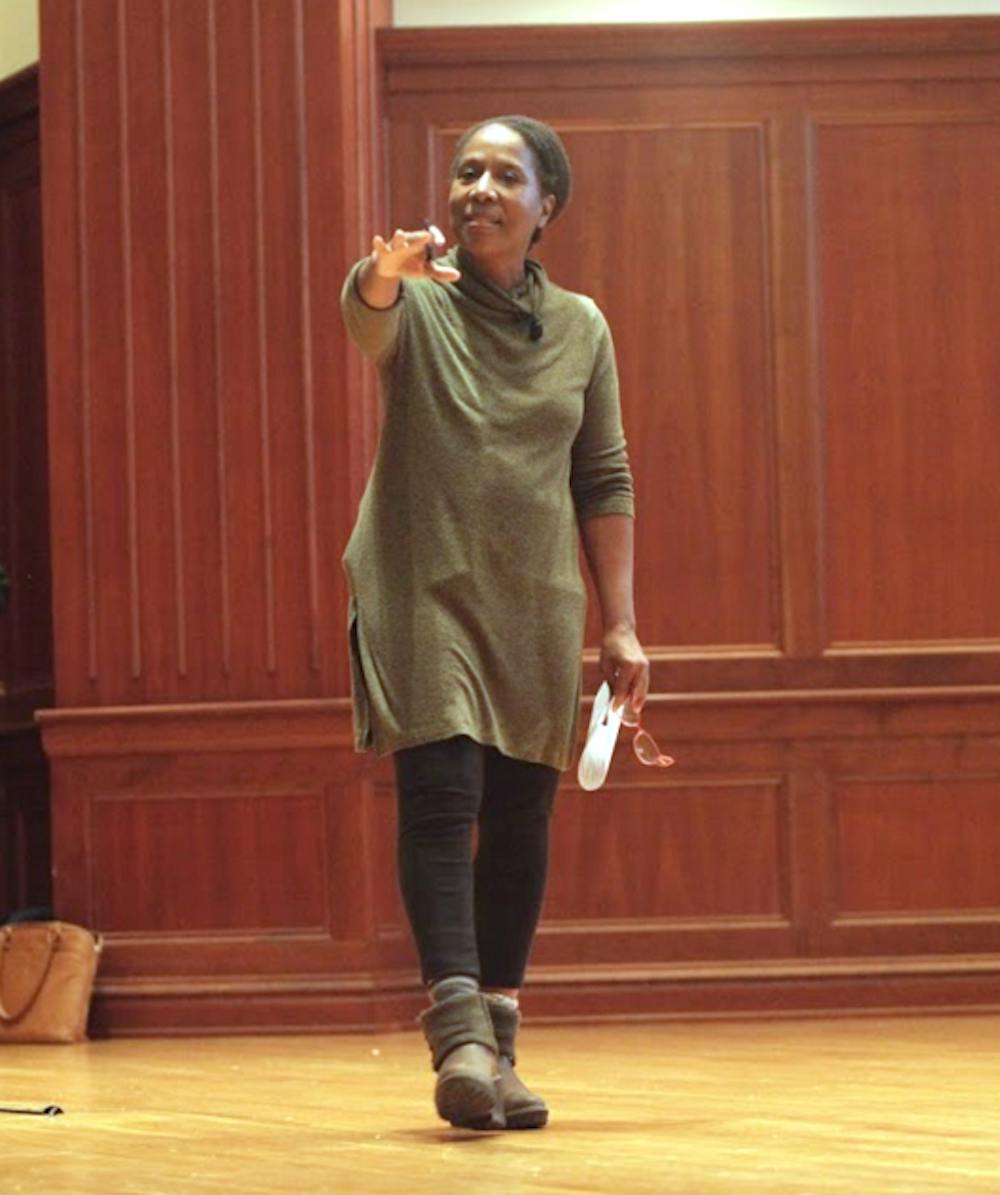By Nicole Viviano
Staff Writer
In the third installment of the Fall 2018 Faculty Lecture Series, the School of Arts and Communication presented excerpts from a film titled, “Seven Square Miles” in Mayo Concert Hall on Oct. 12.
Lorna Johnson Frizell, Communication studies professor and award-winning filmmaker, along with two colleagues, alumna Genevieve Faust (’08) and senior communication studies major Aaron Watson Wilson, elaborated on their experience filming the documentary.

The filmmakers documented Trenton police detective Alexis Durlacher and community activist Abdul Mohammed in their efforts to reduce violence in Trenton. All three speakers focused on the different steps taken in creating a relevant film and developing a piece that is understandable to its audience.
Faust, the film’s editor, has worked on projects with Frizell in the past, reviewed the process of acquiring raw footage and eventually categorizing it into a series of rough cuts, or unedited sections of film. The detailed explanation and clips from the film allowed students to comprehend the idiosyncrasies of filmmaking.
With more than 50 hours of raw footage compiled, Faust explained the specifics of transforming that footage to a concise, thoughtful finished product. She took personal notes to categorize parts of the footage while Frizell’s students organized and transcribed the daunting amount of video.
“I end up treating the film more like a puzzle,” Faust said.
Faust began editing in January of 2018, and Faust and Frizell anticipate that the film will be finished by early next year.
“I have to show the impact of the journey of the characters,” Frizell said.
Wilson explained how he also helped work behind the scenes on the film, helping to profile Trenton residents, and documented the efforts taken by both residents and police to reduce crime in the city.
He was passionate about putting his documentary film skills to use in Trenton, where he grew up. His work helped shed light on the city’s mass incarceration rates.
“We were trying to focus on these overarching issues, but doing it through individual stories and individual people,” he said.
According to Frizell, a filmmaker’s goal is to construct a narrative using characters, goals and challenges to ensure the audience connects and identifies with the story. These aspects ensure an emotional connection between the audience and the film.
“My job as a filmmaker is to create stories,” Frizell said. “I have to build stories.”
Before Faust and Wilson discussed the process of filming, Frizell showed clips from other films that depicted a large scale social justice issue through the lens of specific individuals.
One example was from the 1961 film, “West Side Story.” The song “America” brought up themes of racism and immigration while focusing on the struggles that a family of Puerto Ricans faced moving to the U.S.
The film clips curated Frizell’s main discussion of how to construct a story in film. The goal is to illustrate larger forces in the human experience.
“What you are left with is the humanity,” Frizell said.







